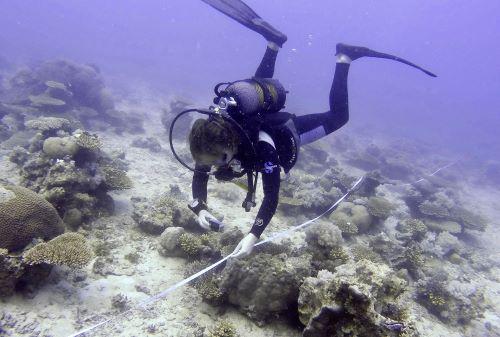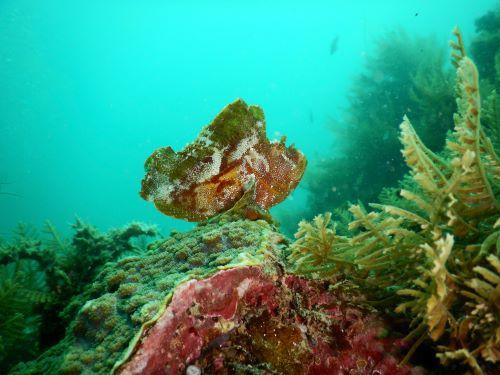Melissa Hampton-Smith
Blast fishing is a fundamentally destructive practice that destroys reef ecosystems and threatens coastal livelihoods. Blast fishing in Tanzania has proven resistant to deterrence measures; however, new data shows a significant reduction in blasting, which has been attributed to government action. This project will gather data on causative factors for blasting and examine the social, economic, and ecological impacts of blast fishing reduction. In 2020, the focus will be on examining coral reef regeneration rates following blasting, as well as assessing the status of key fishery species. Taking this interdisciplinary approach will ensure that relationships between socioeconomic and ecological aspects are explored and will therefore assist in finding sustainable and cost-effective solutions to continue to control blast fishing in the future.

Mtwara reef survey.
The project will take place on the coastline of Tanzania, in a total of five regions. Household surveys and fisher focus groups will be conducted in a minimum of 13 villages, and reef surveys will be conducted in a minimum of three locations. These village sites have been purposively chosen so as to capture the variability of fishing communities. Reef survey sites have been chosen to provide control and test sites, where the growth and recovery rate of previously blasted reefs and non-blasted reefs can be compared. The coral reef habitats in Tanzania comprise considerable biodiversity and house a number of indigenous species. Preservation of these reefs is vital for the conservation of healthy marine ecosystems not only in Tanzania, but also in the broader Western Indian Ocean. Not only do Tanzania's coral reefs have a demonstrable ecological and conservation importance, they are also the main source of food and income for an estimated 47,000 artisanal fishers and the fishing communities that these fishers support.

Leaf fish on Cryptomania reef in Mtwara. © Martha Taylor, Eco2 Diving Centre Mikindan.
Tanzania is unique in the sense that it has experienced decades of blast fishing, and now recently a dramatic reduction in this destructive technique. The government campaign against blasting has provided a valuable opportunity to assess the impact of the reduction in blast fishing on reefs and fishing communities. After extensive blasting, coral reefs take approximately 30 years to start natural recovery. It is therefore crucial that blasting does not resume in Tanzania, so that damaged reefs can begin this process of regeneration and untouched reefs remain as biodiverse and productive as possible. Analysing the impact of the campaign will provide useful data to guide the current policies for fishing, as well as shaping future interventions. The resulting analysis has the potential not only to guide future conservation policy in Tanzania, but also in other areas in the world. Given the small scale of this project, it would also allow one-on-one training of local research assistants to gather reef data, with the ultimate goal of establishing long-term reef monitoring by local Tanzanians.